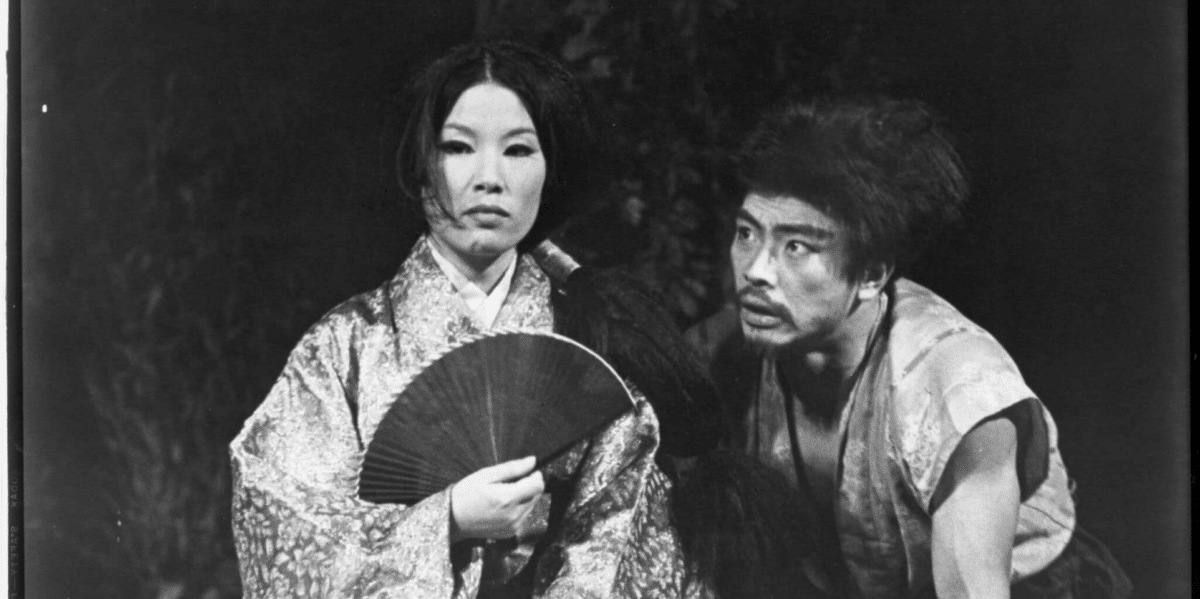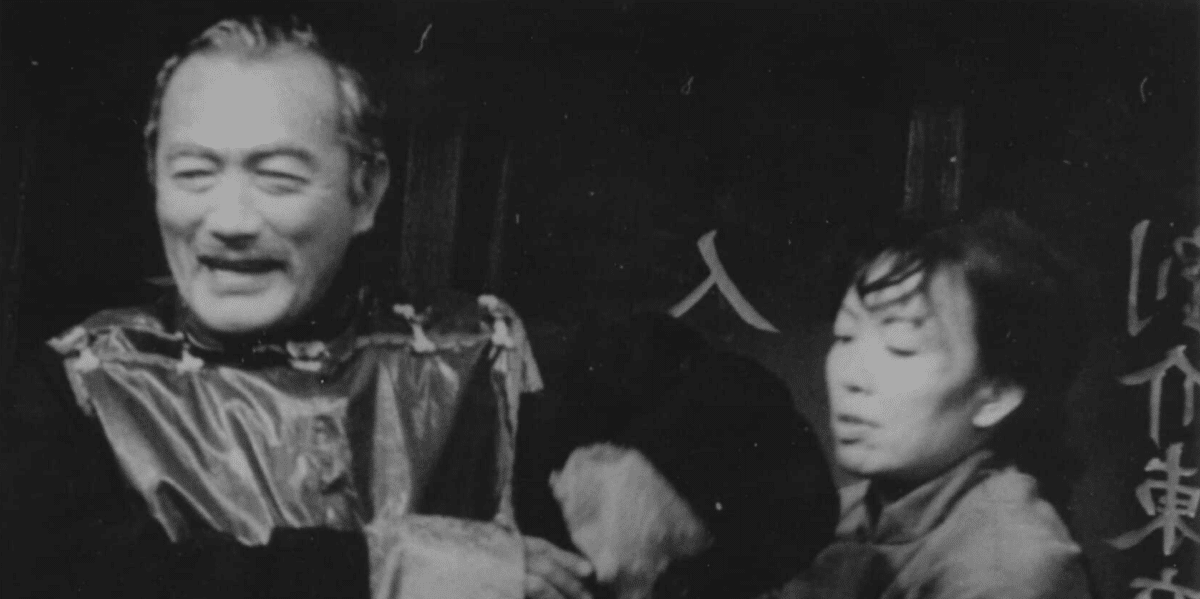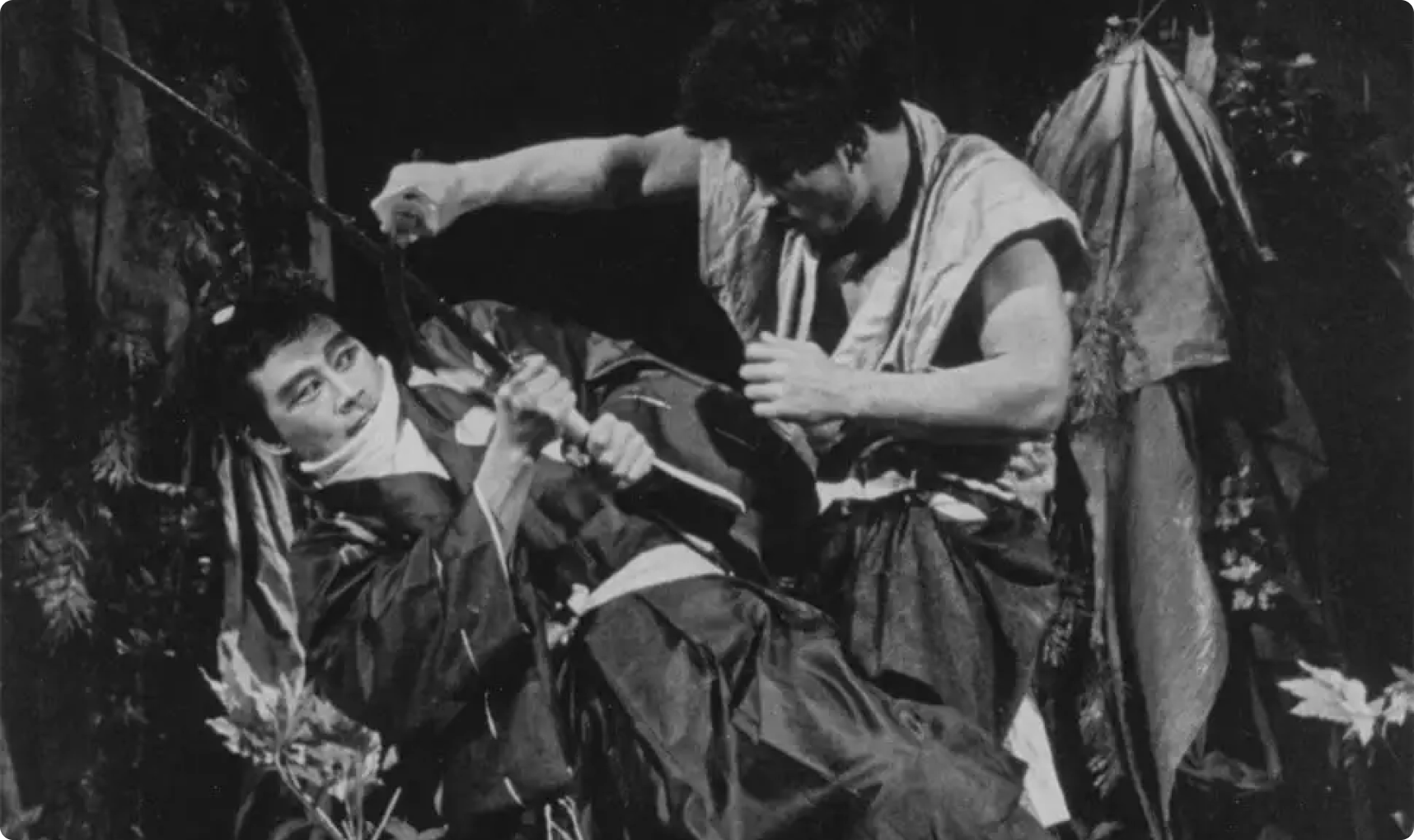The 1960’s




Return to History and Archive
1965-1966
Rashomon
By Fay & Michael Kanin
Based on Short Stories by Ryunosuke Akutagawa
Directed by Norman Gerard
Premiered April 3, 1965 at USC
May 15, 1965 at University of Judaism, Hollywood
July to August 1965 at Warner Playhouse
-
Sheltering from a rainstorm in the derelict Rashomon gatehouse, a commoner wants to hear the strange story that has horrified a priest and confounded a woodcutter. They tell him about a murder inquiry at which they have just appeared as witnesses. Tajomaru (a bandit with a reputation for murder and lust) had managed to tie up a samurai and rape his wife. The woodcutter had discovered the dead body of the samurai in the forest, and the bandit was arrested the following day. But how the samurai was killed was unclear. Strangely, the three people involved all claim to be responsible. The Kanin’s script draws heavily from famed Japanese film director Akira Kurosawa’s 1950 adaptation of the Akutagawa stories.
Rashomon marked East West Players’ first production, premiering April 3, 1965 at the Bovard Auditorium at USC through the Asian Studies Program. The production toured to the University of Judaism, Hollywood, beginning May 15, 1965, then the Warner Playhouse on La Cienega Blvd., performing from July to August 1965.
The production was directed by Rae Creevey, and starred, Mako, Soon-Tek Oh, June Kim, Kam Tong (who passed during the run), Richard Loo (who withdrew mid-run) Tad Horino, and Mitsuya Mori. The production featured set design by Taro Yashima, costume design by Akiko Fujinami, and was stage managed by Sheri Tyler.
East West Players would go on to stage two more revivals of Rashomon during the 1970 season and 1985-86 season.
1967
Twilight Crane
By Junji Kinoshita
Spring 1967
-
Derived from the folktale Tsuru No Ongaeshi, the play follows Yohyo, a poor but kind farmer, who helps a struggling crane escape a trap. Tsu, a textile weaver, offers to marry Yohyo but forbids him from watching her weave. Yohyo finds out that Tsu is a crane using her own feathers to weave textiles. This production was a double bill production showing at the Greater Los Angeles Press Club in the Spring of 1967 along with Lady Aoi.
Lady Aoi
By Yukio Mishima
Spring 1967
-
Based on The Rickshaw Boy by Lao She, set in 1925, the play follows Lucky, a rickshaw boy, running around in the chaotic streets of North China in a time dominated by ambitious warlords. he manages to save enough money to buy his own rickshaw, becoming proud and independent as a rickshaw driver. In the end, Lucky loses his money and his rickshaw, first by soldiers and then by illness.
The production was workshopped and rehearsed in the Bethany Presbyterian Church, and starred Yuki Shimoda, Mako, and more.
Martyrs Can’t Go Home
By Soon-Tek Oh, Music by C. Bernard Jackson, Costume by Akiko Fujinami, Set Design by Mako
-
The play starring Ernest Harada examines contemporary sociopolitical issues in Asia, specifically in North Korea in the 50s. Hyun and his brother Yungho join the army, Hyun caring about the younger soldiers as an individualist and Yungho believing in the communist victory as an enthusiastic nationalist. Their mother is from Japan but has left her home to be with her family. Their father, a doctor who once worked with the Japanese Occupation Army, is deemed a traitor, and to save his son from death, kills himself instead. When Hyun refuses the Major’s and Dull-Shick Park’s orders to spy on an American post, he is shot by Park.
Camels Were Two-Legged in Peking
By Soon-Teck Oh
adapted from a novel by Lao She
Workshopped/Rehearsed in Bethany Presbyterian Church
-
It is an adaptation of one modern Japanese play written by Yukio Mishima, based upon the Noh play Aoi No Ue by Zeami, in which Lady Aoi, the pregnant wife of Prince Genji, is possessed by the spirit of the jealous mistress Lady Rokujo and eventually dies at the end. It was a double bill production showing at the Greater Los Angeles Press Club in the Spring of 1967 along with Twilight Crane.
1968
The Medium
Two-act opera written by Gian-Carlo Menotti in 1945
Directed by Mako
Opened September 5, 1968
-
This two act opera is written by Gian-Carlo Menotti in 1945. The setting for East West Players’ production is post World War Two Japan, in which an unscrupulous woman cheats her clients with fraudulent apparitions and contrived phenomena until herself is contacted by a mysterious presence. Set in Kobe, Japan, Baba-sama (the medium) conducts seances to earn a living, but eventually is haunted by her own seances.
This production was directed by Mako and starred Kiyo Tashima, Rose Kane, Soon-Tek Oh, Shizuko Iwamatsu, Robert Ito, Lie-Ching Wang, Momo Yashima, Margo Quon, Beulah Quo, Masa Urasaki, Dorothy Huang, and Albert Dominguez, and featured musical direction by Ernest St. John Metz and Peggie Sheffield. This production was produced alongside The Substitute and opened September 5, 1968.
The Substitute, a Kyogen
East West Players’ first traditional Japanese theatre piece
Premiered alongside The Medium on September 5, 1968
-
The Substitute is a traditional tale of a nobleman, who in the pretense of making a pilgrimage to cleanse his soul spends a night of dalliance with his mistress. In order to outwit his shrewish wife, he asks his servant to take his place while he is absent. However, the wife discovers the servant’s disguise and pursues her husband.
The production marked East West Players’ first traditional Japanese theatre piece, and starred Ernest Harada, Alberto Isaac, Richard Lee Sung, Yuki Shimoda, Soon-Tok Oh, Shizuko Iwamatsu, Momo Yashima, and Penny Lee. This production premiered alongside The Medium on September 5, 1968.
The Servant of Two Masters
by Carlo Goldoni
Premiered alongside The Medium on September 5, 1968
Directed by Kathleen Freeman
Premiered June 6, 1968
-
Double the work, double the money, and double the dinner! Wily servant Tofu Bok (Truffaldino) is running himself ragged as he serves two masters. In order to get away with it, he’s balancing disguises, secret identities, and, worst of all, LOVE. This is an ensemble production bursting with every zany trick and treat in the book — and a few brand new ones. From conniving clowns to gentle young lovers, The Servant of Two Masters packs plenty of chaos and hijinks. Set designed to represent a Chinatown in Venice.
This production was directed by Kathleen Freeman, and starred Ernest Harada and Alberto Isaac. This production premiered June 6, 1968.
The House of Bernarda Alba
by Federigo Garcia Lorca
Directed by Yuki Shimoda
Premiered November 13th, 1968
-
The House of Bernarda Alba presents Lorca’s views on the pervasive and suffocating traditions and class consciousness of a narcissistic family, which was controlled by a pretentious material mother. The entire course of action takes place in a home, darkened by the loss of the father, whose memory, combined with an overwhelming concern for the maternal lineage, becomes a powerful incentive for the repression of the five daughters.
This production directed by Yuki Shimoda starred Beulah Quo, Elaine Princi, Pat Li, Penny Lee, Elaine Kashiki, Sheri Isaac Emond, Virginia Wing, Momo Yashima, Maria Gahva, and Marcelle Zonta. It premiered November 13, 1968.
The Year of the Cock (revue)
This production was a revue conceived by East West Players’ company members
1969
Now You See, Now You Don’t
by Henry Woon
An original work developed through EWP’s playwriting competition program
Opened April 3, 1969
Three Kyogens
Directed by Shizuko Hoshi
Opened June 27, 1969 at the Bethany Presbyterian Church
-
Don, a Chinese draftsman, cannot get a raise while his white co-workers, with less skill and experience, keep getting promoted. Every interview, he clarifies his determination not to work overtime without pay, and every time, he is rejected. Don finally organizes a group called S.O.A.P. (Society of American Principles) to protect himself and his colleagues from working overtime. An original work developed through EWP’s playwrighting competition program, this play examines the subtle racial prejudice in the workplace of an American company. This production opened April 3, 1969.
The Inspector General
By Nikolai Gogol
Directed by Kathleen Freeman
-
This production is composed by three kyogen pieces. In Mushrooms, a gentleman enlists the help of a priest to help him expel some troublesome mushrooms. Yet despite the priest’s elaborate abracadabra, the situation only worsens until the mushrooms triumph in all. In Two Lords, Two pompous samurai on a stroll are disarmed by a humble but clever messenger. In Tug-of-War, a group of demons attack Samurai Chinzei Haciro Tametomo. The demons try to eat him up but instead, they are comically befuddled by his vastly superior strength.
The production directed by Shizuko Hoshi and starring Alberto Isaac, Ernest Harada, Soon-Tek Oh, and Sumi Hara opened June 27, 1969 at the Bethany Presbyterian Church. The production featured costumes by Akiko Fujinamo, set design by Taro Yashima, and props by Mako.
This production would tour to the Schoenberg Hall of UCLA in 1970.
-
This production is an adaptation of Nikolai Gogol’s satirical play, in which the rumors about an undercover visit from a government inspector turns the whole town into fear for their misdeeds, lots of jokes take place for the Mayor mistakes one traveling clerk as the inspector. It is directed by Kathleen Freeman and starred Soon-Tek Oh and Elaine Mashiki.

